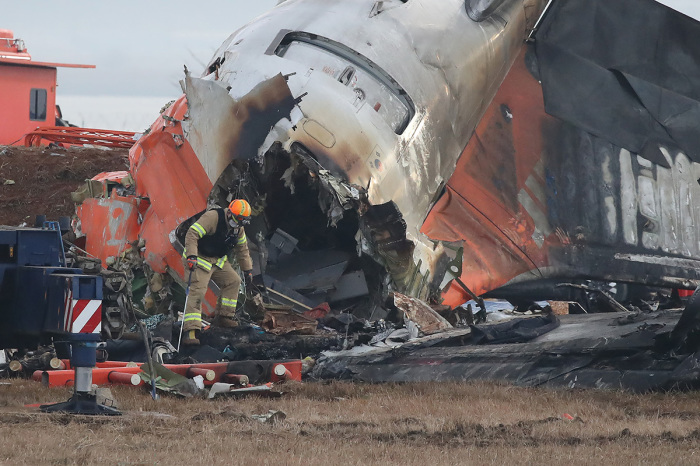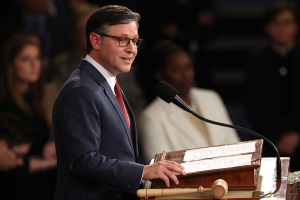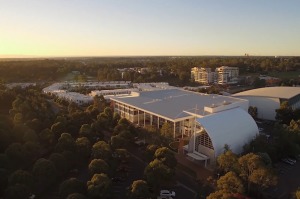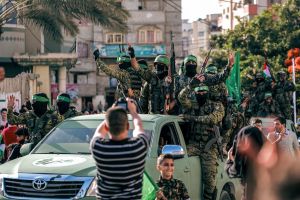2 survivors of deadly South Korea plane crash detail moments before explosion

The two survivors of the Jeju Air plane crash that killed 179 passengers detailed the last moments they remembered before the plane skidded down the runway and hit a structure before bursting into flames.
Jeju Air flight Boeing 737-800 was carrying 181 passengers and crew when it crashed at Muan International Airport on Sunday. Two crew members, a man and a woman, survived the collision and were taken to separate hospitals to recover following their rescue from the rear section of the plane that separated in the crash.
Muan fire chief Lee Jung-hyun said during a briefing that the two were rescued from the tail section of the plane, CNN reported. Video and images of the charred aircraft show that the tail section where the survivors were recovered was the only part of the plane that remained mostly intact.
The male survivor, a flight attendant identified by his surname Lee, received treatment for fractures at an intensive care unit, ABC News reported Monday. Koo, 25, the female flight attendant who survived, is also recovering but is not in intensive care.
Ju Woong, director of the Ewha Womans University Seoul Hospital, revealed during a Monday press conference that Lee was able to communicate with the hospital staff after he awakened. The man reportedly told doctors that he knew when he woke up that he had been rescued.
Lee repeatedly asked, “what happened?” and “why am I here?” before recalling wearing his seat belt before the crash, The Korea Times reported.
Ju, said Lee was “fully able to communicate” and there was “no indication yet of memory loss or such,” but he is being kept in the hospital because of concerns of "full body paralysis."
While neither survivor appears to have life-threatening injuries, according to multiple reports, both had trouble remembering what happened after the plane landed.
Koo, who The Telegraph reports was transported to the Asan Medical Center in Seoul for her injuries, reportedly said in her initial statements: “Smoke came out of one of the plane’s engines and then it exploded.”
The U.K. publication added that the two flight attendants were saved because they were seated in the safest part of the aircraft with their harnesses on.
In response to an inquiry from The Christian Post, a spokesperson from Boeing said, "We are in contact with Jeju Air regarding flight 2216 and stand ready to support them. We extend our deepest condolences to the families who lost loved ones, and our thoughts remain with the passengers and crew."
A team of U.S. investigators, which includes members of the U.S. National Transportation Safety Board, arrived in South Korea this week to assist with analyzing the wreckage of the Jeju Air Boeing 737-800 aircraft.
The plane, which had taken off from Bangkok, Thailand, skidded down the runway and crashed into a wall beyond the tarmac after it landed, according to multiple reports. Investigators are assessing other B737-800 models, which officials have noted are in operation with six local airlines.
"There are no plans to suspend operations, but they will examine those parts once more and check them thoroughly during the inspection process, Song Kyung-hoon, head of Jeju Air's Management Support Division, said in a statement.
Officials confirmed, however, that the Muan International Airport runway is to remain closed for the investigation until Jan. 7.
According to CBS News, the Boeing 737-800 had attempted to land before it received a warning from the ground control center about a bird strike. After sending a "mayday" distress signal, the aircrew attempted to land on a different runway.
When the aircraft touched down three minutes later, according to CBS News, the plane was unable to lower its landing gear. While some sources suggest the eventual crash was the result of engine trouble, others say that the landing gear might have malfunctioned.
Officials investigating the crash believe that the cockpit voice recorder will help provide some answers. According to South Korean Transport Ministry officials, it will likely take months before the investigation into the crash reaches a conclusion.
One former Royal Air Force pilot told The Telegraph that the placement of the runway barrier that the aircraft collided with was "verging on criminal" and believes it is what led to the passengers' deaths.
“The landing was absolutely perfect, the pilot put it down wings level, doing a good job in bad circumstances,” David Learmount, an aviation safety expert told The Telegraph, adding: “Even as it skids off the runway, the plane is still structurally sound and there is no fire.
“But then it hits the bank and all hell erupts. If it had not been there it would have sailed through it.”
In the aftermath of the aviation disaster, the National Council of Churches in Korea, Chairman Rev. Kim Jong-hook, expressed sympathy for the families of the victims and urged other people to join him in prayer.
"We pray for God's great comfort for the bereaved families and the injured who have suffered great sorrow due to this accident," he said in a statement.
"We urge churches across the country to pray together and the government and relevant officials to quickly handle the accident and come up with measures to prevent a recurrence."
Samantha Kamman is a reporter for The Christian Post. She can be reached at: samantha.kamman@christianpost.com. Follow her on Twitter: @Samantha_Kamman





























